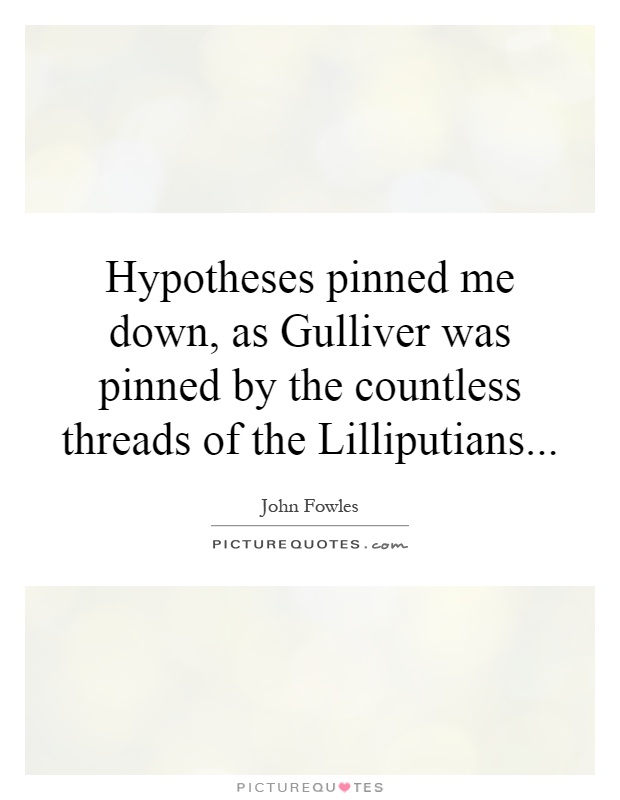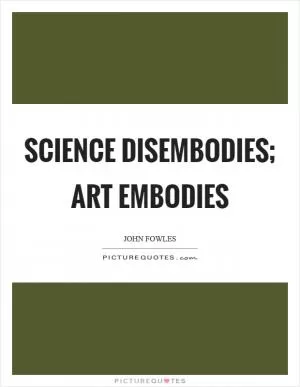Hypotheses pinned me down, as Gulliver was pinned by the countless threads of the Lilliputians

Hypotheses pinned me down, as Gulliver was pinned by the countless threads of the Lilliputians
John Fowles, the renowned English novelist, was known for his intricate and thought-provoking works that often delved into the complexities of human nature and relationships. In his novel "The Magus," Fowles explores the theme of deception and manipulation through the character of Nicholas Urfe, a young Englishman who becomes entangled in a web of mysteries on the Greek island of Phraxos.The quote "Hypotheses pinned me down, as Gulliver was pinned by the countless threads of the Lilliputians" can be seen as a metaphor for the way in which Nicholas finds himself trapped by the various theories and conjectures that surround him. Just as Gulliver is immobilized by the tiny threads of the Lilliputians, Nicholas is unable to escape the web of lies and illusions that have been spun around him.
Throughout the novel, Nicholas is constantly bombarded with conflicting information and conflicting interpretations of reality. He is forced to navigate a maze of half-truths and false appearances, never quite sure who to trust or what to believe. In this sense, the hypotheses that "pin him down" serve as a metaphor for the way in which he is constrained by the limitations of his own perception and understanding.
As the novel progresses, Nicholas begins to question the nature of reality and the validity of his own experiences. He becomes increasingly aware of the ways in which he has been manipulated and deceived, and he struggles to break free from the constraints that have been placed upon him. Just as Gulliver eventually manages to escape from the clutches of the Lilliputians, Nicholas must find a way to liberate himself from the web of illusions that surrounds him.












 Friendship Quotes
Friendship Quotes Love Quotes
Love Quotes Life Quotes
Life Quotes Funny Quotes
Funny Quotes Motivational Quotes
Motivational Quotes Inspirational Quotes
Inspirational Quotes